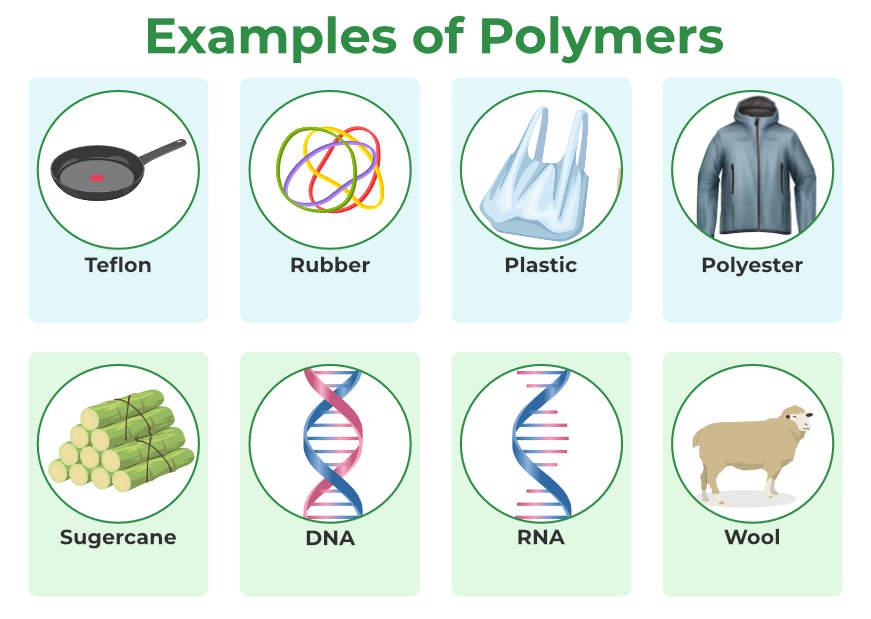Reusing Polymers: Advertising a Circular Economic Climate
Wiki Article
Discovering the Varied Applications and Advantages of Polymers in Different Industries
Polymers, with their diverse series of residential or commercial properties and capabilities, have actually ended up being important in numerous markets, each gaining one-of-a-kind advantages from their application. Polymers. From boosting security and efficiency in the automotive industry to transforming medical gadgets in the healthcare sector, polymers play a crucial role. Furthermore, their eco-friendly nature is altering the landscape of sustainability techniques. As we explore the depths of polymers in electronic devices, we discover cutting-edge developments, while their structural integrity changes the world of building and infrastructure. The prevalent influence of polymers throughout markets is a testament to their convenience and versatility, shaping the future of numerous industries.Automotive Industry Applications
Polymers play an essential duty in enhancing the performance and sturdiness of various components within the automobile market. One noticeable usage of polymers in the automotive market is in the manufacturing of light-weight components.

Healthcare Industry Benefits
In numerous medical care applications, the benefits of making use of polymers are widely recognized for their diverse series of useful homes. Polymers play a vital duty in the medical care sector as a result of their convenience, biocompatibility, and cost-effectiveness. Among the key benefits of polymers in medical care is their capacity to be tailored to certain demands, such as adaptability, resilience, and biodegradability, making them ideal for a variety of medical applications.Polymer-based products are extensively used in clinical tools, such as catheters, implants, prosthetics, and medication shipment systems, due to their biocompatibility and ability to mimic natural cells. These products can minimize the risk of allergic responses or rejections, improving patient safety and end results. Furthermore, polymers are lightweight, making them suitable for wearable medical tools and making certain individual comfort.
Furthermore, polymers allow the growth of ingenious treatment methods, such as hydrogels for tissue engineering and nanocomposites for targeted medicine shipment. Their simplicity of handling and sanitation makes them crucial for preserving high criteria of hygiene in medical care settings. On the whole, the diverse advantages of polymers add considerably to innovations in medical modern technology and client treatment.
Ecological Benefits of Polymers

Additionally, polymers can add to power financial savings due to their lightweight nature. In markets such as transport, light-weight polymer products can assist minimize fuel usage and greenhouse gas exhausts. In addition, polymers can allow the advancement of energy-efficient items such as insulation materials that improve energy preservation in buildings.
Moreover, polymers play a critical duty in decreasing water pollution. As an example, the use of polymer-based filtering systems can properly eliminate pollutants and impurities from wastewater, guarding water sources and ecosystems. Generally, the environmental advantages of polymers make them important possessions in advertising sustainability and green practices across various sectors.
Discover More
Polymers in Electronic Devices and Innovation
Taking into consideration the boosting need for innovative and sustainable remedies in modern-day markets, the combination of sophisticated polymer modern technologies in the world of electronic devices and innovation has arised as a critical strategy for driving performance and performance. Polymers have actually changed the electronics sector by allowing the production of lighter, a lot more flexible, and sturdy digital gadgets. From smartphones to clinical tools, polymers play a critical function in boosting product layout and performance.One considerable benefit of polymers in electronic devices is their insulating buildings, which help shield fragile digital components from ecological factors and electric interference. Furthermore, polymers are essential in the development of adaptable displays, wearable modern technology, and published electronic devices, offering countless possibilities for creating clever and interconnected devices.
In addition, the use of polymers in digital product packaging has actually caused improvements in miniaturization and thermal monitoring, boosting the overall efficiency and dependability of electronic systems. As innovation remains to advance, the flexibility and versatility of polymers will certainly drive even more innovation in the electronics industry, shaping the future of innovation.
Function of Polymers in Building And Construction and Framework
Polymers provide various advantages in the building market due to their versatility, sturdiness, and cost-effectiveness. One essential function of polymers in construction is their usage in finishes and sealants, providing defense against ecological variables such as moisture, UV radiation, and rust.Furthermore, polymers play an important function in lasting building practices by making it possible for the advancement of energy-efficient frameworks. Protecting materials made from polymers assist regulate interior temperatures, minimizing the need for home heating and cooling systems and inevitably reducing power usage. The usage of polymer-based compounds in infrastructure tasks such as bridges and roads improves their longevity and minimizes upkeep expenses. Overall, the unification of polymers in construction and facilities displays their significant impact on modern engineering practices.
Verdict
To conclude, polymers play an important function in numerous industries such as automotive, health care, ecological, electronic devices, and building and construction. Their functional click here for more info buildings make them important in producing ingenious options and items. From enhancing gas effectiveness in lorries to enhancing medical devices, polymers offer numerous advantages. Additionally, their influence on reducing waste and advertising sustainability highlights their importance in modern applications. The prevalent usage of polymers shows their considerable contribution to advancing her response technology and enhancing quality of life.Report this wiki page